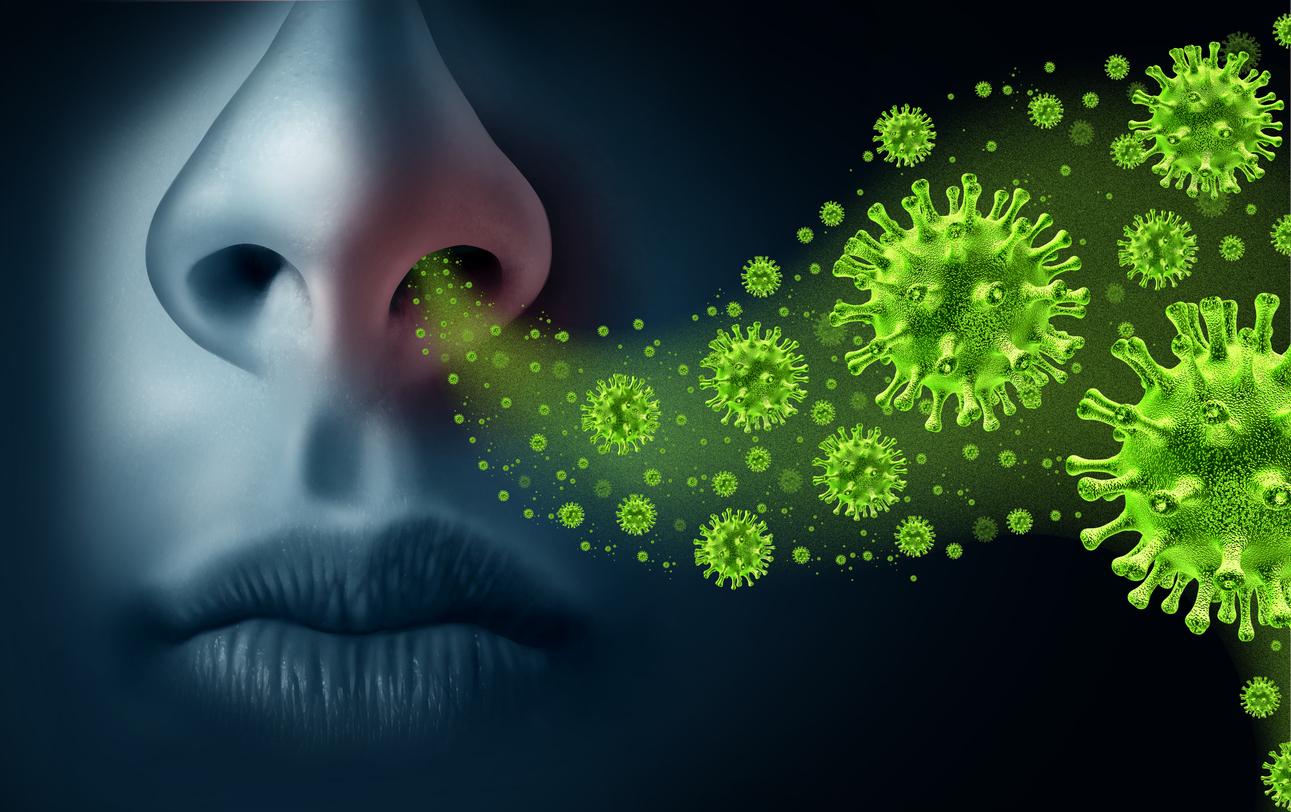Results from a single-center randomized controlled trial published yesterday in JAMA Internal Medicine show that azelastine, an antihistamine nasal spray used as a preventive measure, was associated with a 69% reduction of COVID-19 infection.
Azelastine is a widely available over-the-counter treatment for seasonal allergies (hay fever).
This clinical trial is the first to demonstrate a protective effect in a real-world setting.
"This clinical trial is the first to demonstrate a protective effect in a real-world setting," said Robert Bals, MD, PhD, a professor at Saarland University in Germany and senior author of the study, in a university press release.
The trial involved 450 participants who were divided into two groups: The treatment group (227) used an azelastine nasal spray three times a day over a 56-day period, while 223 participants in the control group used a placebo spray three times a day. The average age of participants was 33, and 66% were women.
At the start of the trial, all participants, healthy adults from 18 to 65, showed no signs of an acute infection, and had negative SARS-CoV-2 rapid antigen test results.
Three times as many people in the control group contracted COVID-19
During the follow-up period 2.2% (5) of the participants in the azelastine group became infected with SARS-CoV-2 as determined by polymerase chain reaction (PCR), but in the placebo group, it was 6.7% (15).
That translates to a 69% lower rate of COVID-19 (odds ratio, 0.31; 85% confidence interval, 0.11 to 0.87).
Among those who did get COVID-19 infections, azelastine demonstrated an increase in mean time to infection (31.2 days vs 19.5 days in the placebo group), and a reduction of the overall number of PCR-confirmed symptomatic infections (21 of treated 227 participants compared to 49 of 223 participants).
Azelastine also significantly reduced rhinovirus infections in the treatment group. During the 56-day follow up, 1.8% developed a rhinovirus infection in the treatment group, compared to 6.3% in the placebo group.
Adverse events were comparable in the two groups
"These results suggest that azelastine may provide meaningful protection against SARS-CoV-2 infection in a prophylactic setting," the authors wrote. "Data on the safety and effectiveness of 2 sprays of azelastine, 0.1%, nasal spray per nostril twice daily for the treatment of moderate to severe seasonal allergic rhinitis as well as the existence of azelastine, 0.15%, nasal spray formulations on the market support the safe use of this medicinal product for longer periods of time."
This intervention targeting the nasal mucosa could prove particularly beneficial in settings where multiple respiratory viruses are cocirculating.
In a commentary on the study in the same journal, Samuel Vidal, MD, PhD, and Dan Barouch, MD, PhD, both from the Beth Israel Deaconess Medical Center in Boston, said the study was promising, but the drug needs more testing among adults with comorbidities. But in the face of ever-changing variants, and vaccines that target the changing virus spike proteins, targeting the nasal mucosa may be a way forward in combating COVID-19 during the cold and flu season.
"This intervention targeting the nasal mucosa could prove particularly beneficial in settings where multiple respiratory viruses are cocirculating or if the pathogens are unknown," the two wrote. "Should the present data be confirmed in larger phase 3 efficacy trials, intranasal azelastine may have substantial clinical utility, given its ease of administration, low cost, and over-the-counter availability."



















